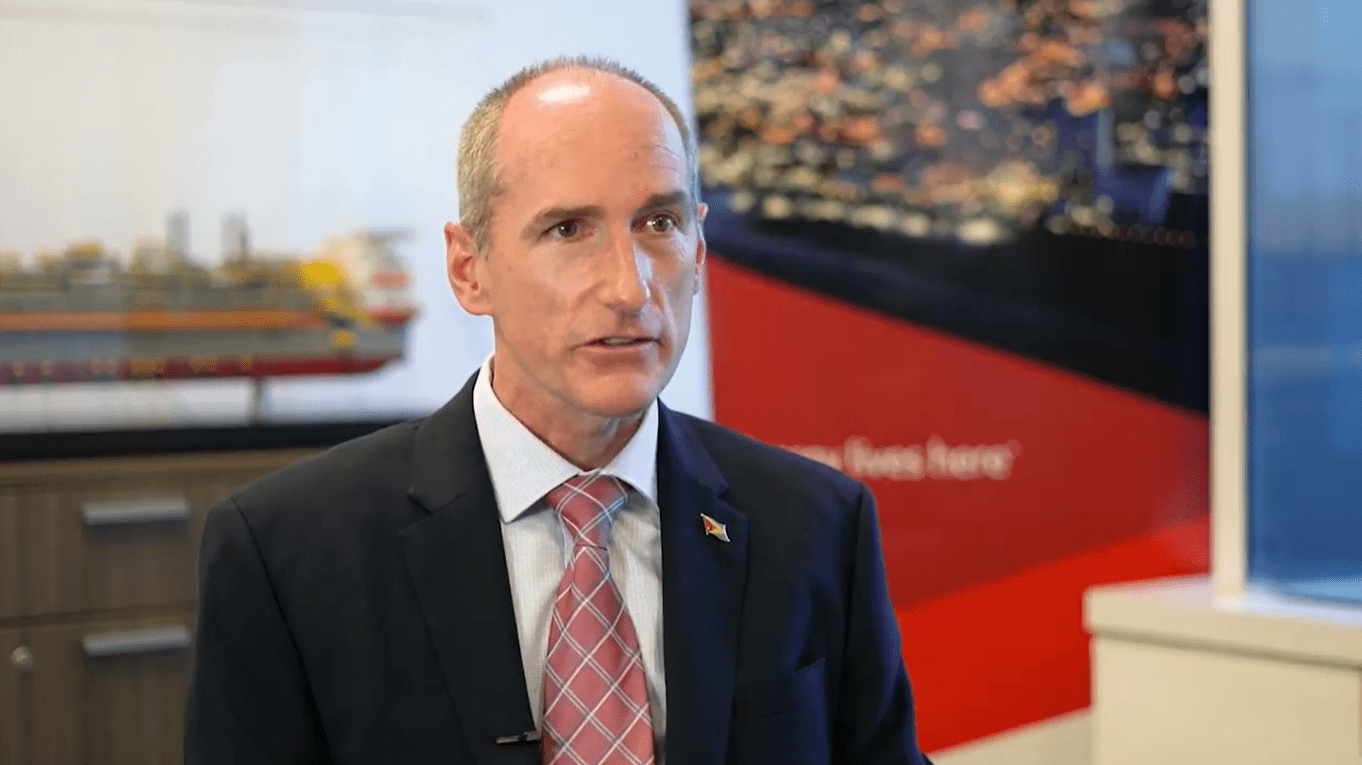President of ExxonMobil Guyana, Alistair Routledge, says that the Stabroek Block Production Sharing Agreement (PSA) is one that is equitable to both Guyana and the consortium of investors. Routledge pointed this out in a recently published article by a Senior Contributor at Forbes, David Blackmon.
“The terms of the Stabroek Block Petroleum Agreement are competitive with other agreements signed in countries at a similar resource-development phase,” Routledge said.
He went on to note that the Government of Guyana has publicly pushed back on criticism and claims contrary to the mutual benefits of the contract, and even referred to analyses conducted by global institutions such as Wood Mackenie and Rystad Energy, that both confirmed the same.
“The Agreement provides a structure and terms that are equitable to both the government and investing companies, commensurate with the risk associated with each project,” he said.
In the Stabroek Block PSA, 75% of the oil produced is set aside for the International Oil Companies to recoup investments made in their exploration and production operations. Guyana is not required to plug any funds into these activities. 25% remains as profit, to be split 50/50 between Guyana and the Stabroek Block consortium. This means the partners get 12.5%, while 12.5% goes to the government. The government’s share is further increased with a 2% royalty payable by the contractor group, pushing it up to 14.5%.
Importantly, ExxonMobil foresees a substantial reduction in the share of revenues being recovered in ten years’ time, which would result in more profit oil for all parties. The estimate depends on several factors: production levels, the size and scale of projects and projected oil price movement during the period.
Maintaining contract sanctity and the stability assured by the government has resulted in rapid exploration and development investments from the co-venturers. This investment agenda prevailed, even during the hardship of the COVID-19 pandemic.
“During the pandemic, when others were scaling back, “Routledge pointed out, “ExxonMobil Guyana and our co-venturers continued investing and developing the opportunity in Guyana, helping the country become an oil exporter in 2020 and contributing to the country’s economic growth.”
Furthermore, on continued investment, Exxon plans to drill 60+ wells over the next six years.




